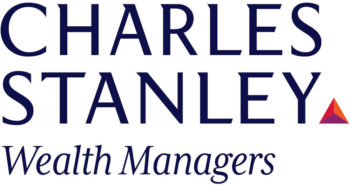Your Local Broker, Internationally
Berthon UK
(Lymington, Hampshire - UK)
Sue Grant
sue.grant@berthon.co.uk
0044 (0)1590 679 222
Berthon Scandinavia
(Henån, Sweden)
Magnus Kullberg
magnus.kullberg@berthonscandinavia.se
0046 304 694 000
Berthon Spain
(Palma de Mallorca, Spain)
Simon Turner
simon.turner@berthoninternational.com
0034 639 701 234
Berthon USA
(Rhode Island, USA)
Jennifer Stewart
jennifer.stewart@berthonusa.com
001 401 846 8404
GENERAL OVERVIEW OF THE INTERNATIONAL STOCK MARKETS AND ECONOMIES | 2018
BY JOHN REDWOOD, CHARLES STANLEY’S CHIEF GLOBAL STRATEGIST 09.01.2018
The last few years have seen a good bull market in shares. It has also been a very worried bull market. Many professional investors and private savers have kept substantial savings in cash despite the very low income on bank deposits and low risk bonds. The collapse of share markets during the 2007-9 banking crash has cast a long shadow. People are always looking behind them wondering if it could happen again. Today more people are asking themselves have they missed out, or can these share markets continue to go up? At Charles Stanley we keep on worrying about what might go wrong, but we have stuck to the view for many months that share markets should do well in these conditions.
Let me begin with the worries.
The first and most important is how much longer will leading Central Banks want to provide easy money and keep interest rates so low? It is, after all, these actions that have powered the bull market so far. How far will rate rises go? Will Central Banks cease creating money to buy up government bonds? Will this be done at a measured pace which allows the recovery to continue, with sufficient liquidity for share purchases? Is the internet and substantial labour mobility and migration now ensuring recovery does not push up wages and prices too far too fast? This question has consequences for the dollar, interest rates and shares.
On balance we think the Central Banks will continue with enough stimulus to satisfy share markets in 2018. The Bank of Japan is pledged to keep on creating money to keep interest rates around zero. The European Central Bank is in no hurry to make any increase in interest rates, though it will reduce the amount of money it creates over the course of 2018. The US authorities have pushed interest rates up to 1.5% so far without bringing the stock market down, and look as if they can put through another two or three small rate rises in 2018 without doing much damage.
The second worry is to ask, can the world sustain its current synchronised recovery? Are there dangers lurking in Chinese debts or European banks or US or EU politics that could impede this progress? So far it looks as if theworld economy can grow more than 3% this year, with all the main advanced countries and most of the developing world contributing positively. The Chinese are well aware of domestic problems with bad debts and weak banks, and look as if they are managing their way through it without causing problems for the real economy. Meanwhile the Eurozone now has strengthened its leading commercial banks after several years of struggle. The political risks in the Euro have abated with the decisive victory of pro Euro forces in the French election and the inability of anti Euro parties to win a majority so far in any Euro country.
The third worry is the possibility that inflation will pick up too quickly and force a change of approach by the authorities in leading economies. So far there is no sign of this happening. Despite the better recovery in activity underway in the Eurozone, core inflation remains below 1%. The US has not seen much by way of inflationary pressures despite several years of recovery and a substantial fall in unemployment. Japan is struggling to get any increase in inflation as it strives to get its rate up to the 2% most Central Banks have as their target. It appears that internet based competition allows people and companies to source goods and services from around the world at keen prices, keeping inflationary pressures down. Meanwhile large migrations ofworkers into higher paid countries with fuller employment, allied to outsourcing to lower cost areas, has kept wage growth down. The old stop go cycle hit the need for a stop phase when wage inflation leapt up. There is no sign of that happening in most advanced countries.
So maybe we can allow ourselves the luxury of a little optimism, and ask what is going right?
World output should continue to expand faster than 3% a year, with modest acceleration likely in 2018. The recovery is now synchronised around the world. There are signs emerging of a more positive credit background, as years of attempted easy money in the advanced countries at last starts to generate a bit more lending to individuals and companies. The US has led the advanced country revival and is the dominant force in the internet revolution.
Markets got over their shock at the election of Mr Trump very quickly. They looked forward to his reflationary moves. Attention now centres on the major tax reform plan the Republicans have piloted through the Senate and House. The ten year package represents a substantial fiscal stimulus, with improved incentives for business and individuals. Mr Trump inherited a US economy in good shape. US unemployment is low, wages are rising modestly, employment is still increasing and the economy is expanding at a reasonable pace.
Labour force participation remains quite low at 63% of the working age population, implying more people may still be tempted
into work as wages and vacancies rise. The banking system is sufficiently mended to be able to lend to finance, increasing company activity and to help consumers buy larger ticket items including homes and cars. The US is still the leading internet and digital technology provider to the world, sporting the major international groups that have pioneered the digital revolution. The US has good leading universities and a favourable culture for business start-ups, new ideas, and the provision of capital to early stage ventures. All this helps the economy grow and gives it a major presence in world markets.
Charles Stanley remains relatively optimistic about the USA. Its higher valuation than other share markets in part reflects the higher weighting of growth sectors within it. Share investors worldwide have to go to the USA to get big exposure to the digital age. The tax cuts will mean companies keep more profit and report higher earnings, allowing them to pay larger dividends. We have favoured technology stocks within the US and they have done very well. The big four in NASDAQ are now looking for ways of extending their phenomenal growth. They have plenty of cash and are making acquisitions outside their core areas to expand into new business models for entertainment and retailing. This will need watching in case they overextend and buy lower margin, lower value businesses that depress returns. Recent retail figures show the growing dependence of the consumer on internet based transactions.
There is a furious pace of business adjustment between old and new model businesses. Bank shares are also beneficiaries of the tilt to higher rates and to easier conditions over lending.
What could go wrong? Mr Trump could make serious errors of economic judgement which led to damaging policies by the Administration. The Fed could become more aggressive than markets think, with a strong dollar reinforcing the deflationary tendencies of a more rigorous monetary policy. We regard these as low probabilities. We do need to consider the extent to which global markets are dependent on continuing tech success.
The Euro area economy taken as a whole last year saw some better growth, pushing up to around 2%. Inflation has stayed low. The balance of payments surplus has remained high. Asset prices, particularly of bonds, have been pushed up and sustained by large amounts of Quantitative easing and ultra-low interest rates. Germany and the northern states will do better than Italy and Greece. Spain is recovering from her property and banking crash. France is at last performing better. It looks as if there can be further economic growth this year based on supportive bank policies. The UK too will see reasonable growth, with a positive outlook for manufacturing which is competitive at the current exchange rate and capable of boosting exports.
Japan is enjoying faster growth after years of trying to overcome the aftermath of its property and credit collapse in the early 1990s. China looks as if it will continue to achieve growth above 6% this year, whilst seeking to move away from reliance on basic industrial products and exports for growth, towards higher technology, services and domestic consumption.
All in all there are still things to be cheerful about in the world economy. We will keep on worrying, but you can worry too much.
Investment involves risk and investors might not get back the original amount invested.
Charles Stanley is a trading name of Charles Stanley and Co. Limited, which is authorised and regulated by the Financial Conduct Authority. A member of the London Stock Exchange and wholly owned by Charles Stanley Group PLC.

